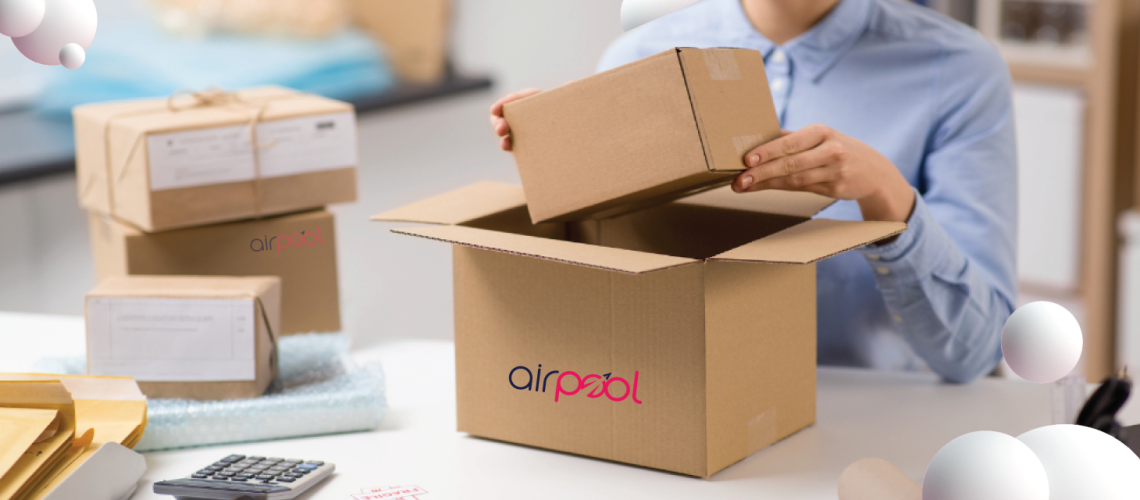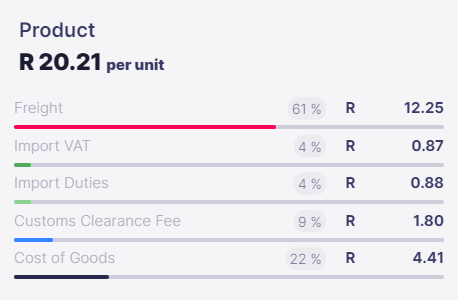

Consolidation is a smart way to simplify the import process, reduce shipping costs and ensure total transparency. If you bring goods into South Africa from China, consolidation promises to transform the way you import. But what is consolidation? And what should you look for in a consolidation provider?
If you import from China to South Africa, package consolidation offers a simpler and more reliable way to get your goods to market. And as inflationary pressure starts to bite in markets around the world, consolidation has another critical benefit: it’s a more cost-effective way to import, helping your business remain competitive.
How consolidation works
Consolidation is a bit like carpooling. The difference is it’s not you and your colleagues sharing a car to work. Rather, the goods you want to import are consolidated in a bulk shipment with other importers’ items.
Here’s how it works. When the items arrive at the local consolidation centre, an expert shipping team carefully checks the goods. They ensure that the goods meet all appropriate security criteria and are suitable for shipment. The team also assesses the precise weight and dimensions of the package.
Once the package is cleared for shipping, it is placed together with other suppliers’ packages to be dispatched on the next outbound delivery. The goods are not removed from their original packaging and arrive as dispatched from the supplier.
An inflation-beating packaging plan
The great value of consolidation is that you can take advantage of bulk rates even when importing a smaller volume of merchandise at any given time.
Considering that freight rates have grown an eye-watering 283% in the last two years, the cost-benefit of consolidation is clear. With inflationary pressure due to high demand, supply chain bottlenecks and surging energy prices, consolidation enables retailers and online sellers to remain competitive.
A simpler way to import
However, affordability is just one benefit of consolidation. Without a professional and transparent consolidation service, importers need to manage the import process themselves.
Importing involves reams of paperwork and often requires specialised knowledge. In addition to organising the actual logistics of getting goods from China to South Africa, there are a number of highly technical customs and legal procedures. Importers need to manage import VAT and file accurate customs paperwork, which needs to include the correct HS codes.
Managing these technicalities is not simply a prerequisite for importing goods. If you ship merchandise with incorrect paperwork, you risk penalties, additional charges, and expensive delays.
A good consolidation manages the entire process for you, avoiding delays and ensuring there are no additional charges.
A flexible sourcing solution
Many South African retailers source their goods from various manufacturers in China. Shipping different packages, from multiple suppliers, at different times is highly unpredictable, confusing, and logistically demanding.
A consolidation company can streamline the whole process. With consolidation, you can purchase goods from various suppliers and have them all sent to the local consolidation hub. Once your goods have arrived, they can all be sent together, and dispatched to one single location in South Africa.
Tracking your consolidated package is also much simpler. Now, you only need one tracking number to identify the location of your package at any given moment.
Safety in numbers
Instead of multiple loose items that can get easily damaged, a consolidated shipment is a tightly packed single unit. It’s securely packaged together by the expert consolidation team, with little chance for loose items to slide around and get damaged in transit.
In addition, when goods do not fill a single package, they tend to get moved around to different points along the supply chain, and handled by multiple personnel, greatly increasing the chances of damage. Consolidation reduces that risk.
Are there any downsides to consolidation?
As we can see, consolidation is simpler, more efficient and more cost-effective. At least it should be. However, consolidation isn’t offered by all couriers. Many standard shipping companies do not have a consolidation facility and you need to manage the logistics yourself, at a higher cost.
Second, it’s important to note that not all consolidation services are created equal. In many cases, there is little transparency once your goods arrive at the consolidation hub. The shipper does not inform you of the waiting time and you have no way of tracking your goods.
In some cases, there may be long delays as the consolidator waits for other clients’ goods to arrive. These delays may not be effectively communicated to clients, and you may be forced to wait for an indeterminate period of time for your goods to be dispatched.
There’s an additional reason to carefully select a consolidation service. As an importer, consolidation greatly simplifies your life. However, for the company actually managing the shipping process, consolidation is a serious feat of organisation.
The process needs to be undertaken by specialists with a deep knowledge of each step of the process from logistics, to VAT to customs and beyond. They must be able to expertly consolidate goods from multiple suppliers, ensure these are shipped packaged optimally, and get each package precisely where it needs to be, as efficiently as possible.
A consolidation service that makes it easy
Airpool’s airfreight consolidation service makes importing easy. Airpool puts customer service first. Onboarding is remarkably quick and easy. And we ensure all your paperwork is in order, so there are no delays or penalties. It’s a fully transparent service that enables you to calculate the total cost of delivery upfront and track your package every step of the way.
Airpool is part of a network of leading global logistics, VAT and compliance experts. We leverage our network to provide a seamless end-to end import solution. Through Airpool, South Africa’s e-commerce sellers, startups and entrepreneurs are able to access this network of specialist providers and secure more cost-effective and reliable imports for their businesses.
Landed cost is the sum of all expenses associated with importing your goods from China to South Africa. This includes the cost of the goods paid to your supplier, the shipping costs, clearance costs and the import taxes & duties.
It is represented on a per unit cost and helps you with:
Note: This is not what you are paying to Airpool but rather what you are paying to all the suppliers and relevant parties: Airpool, the Manufacturer of the goods and the Import Taxes (VAT & Duties)
